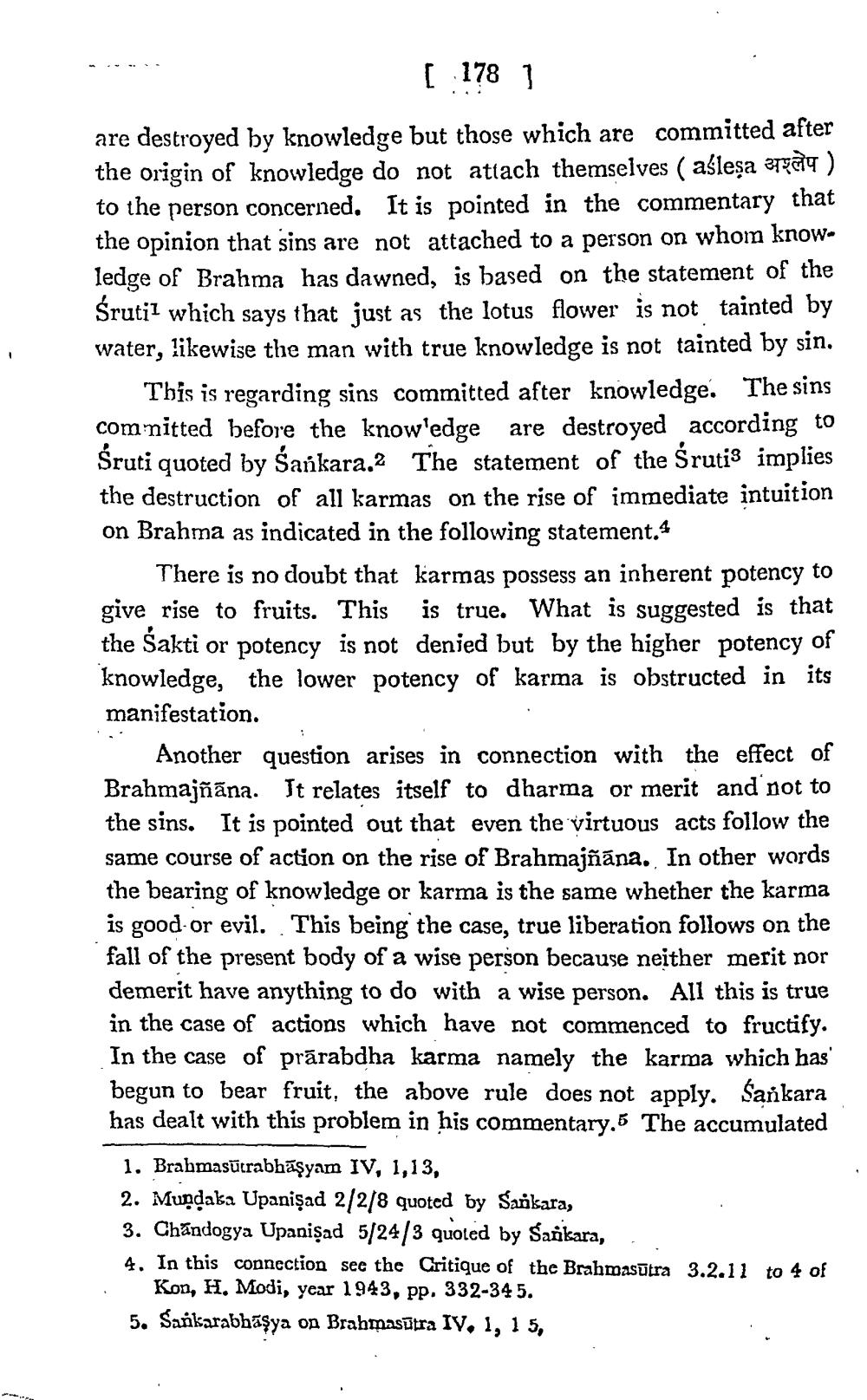________________
[ 178 1 are destroyed by knowledge but those which are committed after the origin of knowledge do not attach themselves ( aśleşa ya ) to the person concerned. It is pointed in the commentary that the opinion that sins are not attached to a person on whom knowledge of Brahma has dawned, is based on the statement of the Śrutil which says that just as the lotus flower is not tainted by water, likewise the man with true knowledge is not tainted by sin.
This is regarding sins committed after knowledge. The sins com nitted before the knowledge are destroyed according to Śruti quoted by Sankara.2 The statement of the Srutis implies the destruction of all karmas on the rise of immediate intuition on Brahma as indicated in the following statement.
There is no doubt that karmas possess an inherent potency to give rise to fruits. This is true. What is suggested is that the Sakti or potency is not denied but by the higher potency of knowledge, the lower potency of karma is obstructed in its manifestation.
Another question arises in connection with the effect of Brahmajñāna. It relates itself to dharma or merit and not to the sins. It is pointed out that even the virtuous acts follow the same course of action on the rise of Brahmajñāna. In other words the bearing of knowledge or karma is the same whether the karma is good or evil. This being the case, true liberation follows on the fall of the present body of a wise person because neither merit nor demerit have anything to do with a wise person. All this is true in the case of actions which have not commenced to fructify. In the case of prārabdha karma namely the karma which has begun to bear fruit, the above rule does not apply. Sankara has dealt with this problem in his commentary,5 The accumulated
1. Brahmasūtrabhāşyam IV, 1,13, 2. Mundaka Upanişad 2/2/8 quoted by Sankara, 3. Chándogya Upanişad 5/24/3 quoted by Sarkara, 4. In this connection see the Critique of the Brahmasūtra 3.2.11 to 4 of
Kon, H. Modi, year 1943, pp. 332-34 5. 5. Sankarabhāşya on Brahmasūtra IV, 1, 15,




